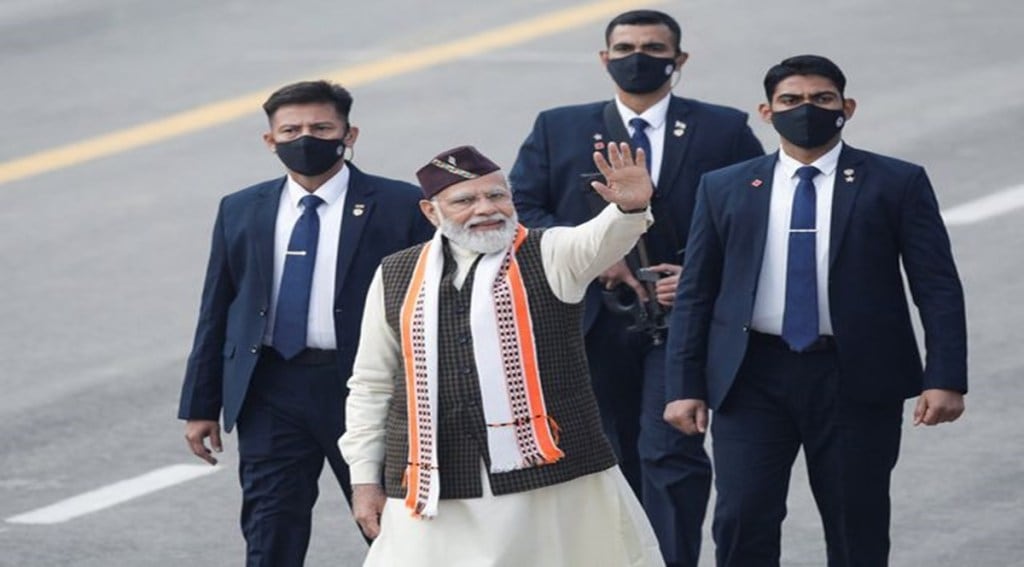The three letters IAS (standing for Indian Administrative Service) have a magnetic quality about them even after 75 years of Independence. They represent social status, power, an assured income for about 32-35 years, pension for life, perquisites, medical care and, more often than not, job satisfaction. A rung or two below is the Indian Police Service (IPS). Nearly 200,000 young men and women go through a process of written examinations and interview to be included among the 400 candidates who are selected to the two services. The reservation for Scheduled Castes and Scheduled Tribes and, lately, for Other Backward Classes (altogether not exceeding 49.5 per cent) has made the two services an aspirational goal for millions of students belonging to the disadvantaged communities.
The IAS and IPS were successors, respectively, to the ICS and IP under British rule which had acquired the moniker ‘Steel Frame’. The members of the two services render stellar service. The popular opinion, though, is that a number of ills have crept into the services. Among the ills is that some members crave political patronage and the political authority is only too willing to extend patronage. The steel frame is no longer as sturdy and upright as one would have desired.
Rules Broken Merrily
That aside, the Rules that govern the two services are more honoured in the breach than in the observance. Take the ‘Cadre Rules’ which are now the subject matter of a brewing dispute between the Central government on the one hand and several state governments on the other. The IAS (Cadre) Rules and the IPS (Cadre) Rules were made in 1954 and are similar, but nearly every rule is violated in practice.
Rule 5 provides for allocation of members to various cadres. The method followed for many years was transparent, but inflexible. The method has been tweaked from time to time giving rise to questions and doubts, yet the allocation is reluctantly accepted by many candidates who dare not protest. Rule 7 promises that a cadre officer shall hold a post for the prescribed minimum tenure, but the rule has been merrily ignored by every party-government and transfers — abrupt, frequent and irrational — have become the norm.
Rules 8 and 9 stipulate that cadre and ex-cadre posts shall be filled by cadre officers and a non-cadre officer may be appointed to these posts only temporarily, but these two Rules have been violated so routinely that they have, in effect, been repealed. The worst violation is the creation of numerous ex-cadre posts equivalent to cadre posts (e.g. Chief Secretary and Director General of Police) and shunting ‘unwanted’ officers to hold the ex-cadre posts.
Physician, Heal Thyself
The steel frame is broken. There is worse in store. It will be dismantled altogether if the new amendments proposed recently by the Central government — and vehemently opposed by several state governments — are carried through. The first amendment is intended to address the problem of ‘inadequate’ number of officers deputed to the Central government under the ‘deputation reserve’ of 40 per cent. In the last seven years, the actual ratio has come down from 28 per cent to 12 per cent. The problem may be real, but the causes are deeper. Unlike in the past when officers vied with each other for Central deputation, why are officers unwilling to be deputed to the Central government?
Firstly, the toxic work culture under the Modi government. Secondly, the working conditions, especially the long wait for a suitable house. Thirdly, the over-centralization of authority in the PMO and the reduction of ministries/departments to no more than subordinate offices. Secretaries wait on the PMO every morning to receive instructions. Most paragraphs of the Budget speech are written in the PMO.
Fourthly, the arbitrary postings of officers (many remember the humiliating transfers effected soon after the change of government in May 2014). Fifthly, the gross delays in empanelment and promotion. The Prime Minister should first address these negative aspects of working in the Central government.
Assuming that the first amendment is motivated by need, it is evident that the second amendment is motivated by pure malice. It will confer power on the Central government, in “specific situations”, to unilaterally summon any officer to serve under the Central government. We know what the “specific situations” will be? The case of a retiring chief secretary of West Bengal who ‘failed’ to receive the Prime Minister at the airport and the cases of police officers who ‘failed’ to provide security to Mr J P Nadda are fresh in memory.
Alternative Solutions
The proper response will be to correct the negative perceptions of service under the Modi government and to explore alternative solutions. One suggestion is to increase the number recruited annually so that the abundance of officers will oblige the state governments to depute officers to the Central government. Another suggestion is to identify at the time of initial recruitment a small number of willing officers as ‘hard core’ and appoint them to service exclusively under the Central government (as was the practice in the IPS).
Under Mr Narendra Modi, cooperative federalism has long been buried. We have entered the phase of confrontational federalism. If the Modi government has its way, we will have the Indian Beholden Service; the current states will be reduced to mere provinces; and service under the government will be reduced to servitude.

